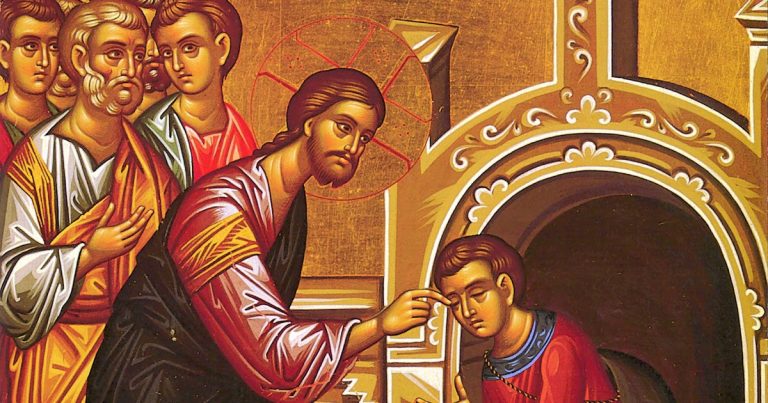Christ is Truth, is Reason, is Life
Our generation—where the Lord has chosen for us to work out our salvation—is one of great challenges. Many in our society believe that science has disproved religion, that religion was merely there to explain the inexplicable, and religions will eventually die out. “God is dead” is their slogan, their mantra.
The subtlety of the Devil is not in an outright lie, these are easy to spot: rather it is in giving us enough truth that we will believe a misdirection. “God is dead” contains some truth, but it has been distorted and disfigured: it is not “God is dead” but rather “God died.” God, in his infinite love for each one of us, died. And, not only this, not only did God die but he arose and has brought new life to all who believe in him.

In our confused world, many of faith are tempted by doubt yet many of doubt are tempted by faith. Those who choose atheism over Christianity seem rarely to do so because of facts and data but because they find the narrative presented to be more convincing. Christianity is often presented as irrational, unscientific and redundant in our modern world: there are even some Christians who rejoice in these labels but our Faith is none of these things. Our Faith is centred on Christ who is the incarnate (literally “in flesh”) Word of God: Christ is Truth, is Reason, is Life. The seeking of truth—whether spiritual truth, scientific truth, philosophical truth, etc.—has Christ at its goal and does not cause us to fear.
Yes, there are doubts, and we hear of the doubts of a father in this Sunday’s Gospel reading. Although his words were said two thousand years ago they sound contemporary to our world.
At that time, a man came to Jesus kneeling and saying: “Teacher, I brought my son to you, for he has a dumb spirit; and wherever it seizes him it dashes him down; and he foams and grinds his teeth and becomes rigid; and I asked your disciples to cast it out, and they were not able.” And he answered them, “O faithless generation, how long am I to be with you? How long am I to bear with you? Bring him to me.” And they brought the boy to him; and when the spirit saw him, immediately it convulsed the boy, and he fell on the ground and rolled about, foaming at the mouth. And Jesus asked his father, “How long has he had this?” And he said, “From childhood. And it has often cast him into the fire and into the water, to destroy him; but if you can do anything, have pity on us and help us.” And Jesus said to him, “If you can! All things are possible to him who believes.” Immediately the father of the child cried out and said, “I believe; help my unbelief!” And when Jesus saw that a crowd came running together, he rebuked the unclean spirit, saying to it, “You dumb and deaf spirit, I command you, come out of him, and never enter him again.” And after crying out and convulsing him terribly, it came out, and the boy was like a corpse; so that most of them said, “He is dead.” But Jesus took him by the hand and lifted him up, and he arose. And when he had entered the house, his disciples asked him privately, “Why could we not cast it out?” And he said to them, “This kind cannot be driven out by anything but prayer and fasting.” They went on from there and passed through Galilee. And he would not have any one know it; for he was teaching his disciples, saying to them, “The Son of man will be delivered into the hands of men, and they will kill him; and when he is killed, after three days he will rise.
— Mark 9:17–31
“I believe; help my unbelief!” These can be our words. Lord, take the small measure of faithfulness I have and grow it, nurture it, cultivate it that I may have more faithfulness. In giving the little we have, and offering it to the Lord, he will return it to us that we have more. And when we receive more, we must remember that if we try to hold onto it it will wither, if we offer it back again to the Lord it will grow.
My dear brothers and sisters, friends, it is not wrong to have doubt. Our world has doubt. But what will you, will I, do with that doubt? Do we, as the father in this Gospel, offer it to the Lord or try to hold onto it and watch it diminish? Do we accept the narrative of our world that Christianity is backward and wrong or do we stand for Truth and express a desire to deepen our learning that we may discover Truth, discover Christ, more fully? Do we believe, while simultaneously asking God to help our unbelief?
